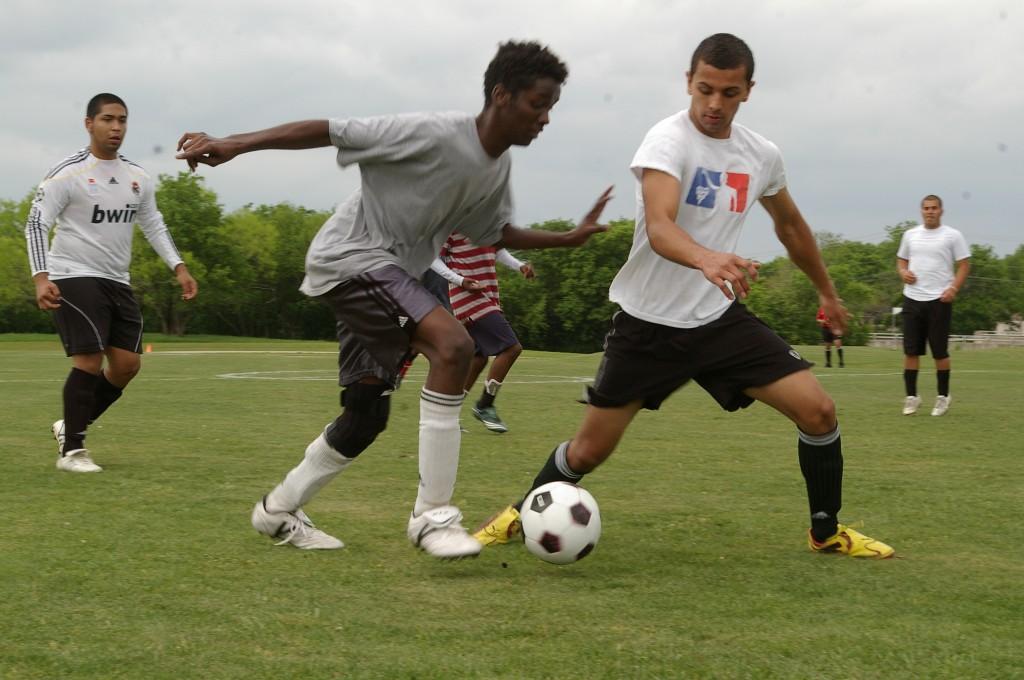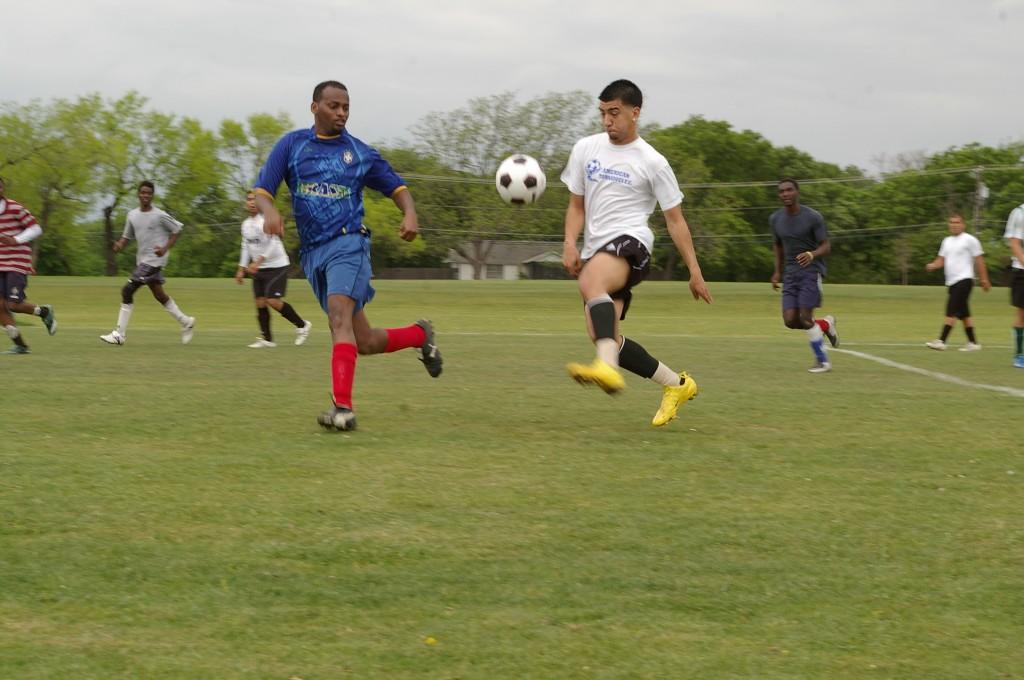By Alonzo Meza/reporter
Most people grow up without good or effective skills for coping with conflict, a Trinity River advisor told students recently.
Jeronimo Aviles presented Conflict Resolution April 13 to give students help to cope with conflict.
“There is conflict everywhere, and we must know how to confront the problem,” he said.
Aviles said conflict is between two individuals who perceive that their goals, values, etc., can be reached only by one or the other but not both. Conflict can be positive or negative.
“Both positive and negative conflicts can have their own strength,” he said.
The positives are those that lead to change and growth, to resolution and to intimacy. The negative outcome can be disruptive and destructive and feel bad for those involved. Another negative is that it uses personal and physical energy and cannot be taken back.
“Conflict takes a lot of energy,” he said. “Negative conflict means there is no pleasure toward you, but it doesn’t mean that it is bad.”
Conflict can lead to negative feelings, but it can also be a next step in the resolution.
Conflict itself is neither good nor bad. The issue is whether people can cope effectively since conflict is a given. Conflict does not damage a relationship, but mishandling of conflict can.
Aviles said people should recognize the difference between opinions and disagreements. An opinion has no rising anger, no growing hostility or resentment because it is not important. A disagreement is not about facts but hurt feelings underneath. It is about personal identity.
People can react physically or emotionally to conflict. Some people learn to be compliant and reduce conflict by giving in. Others become indifferent and may withdraw from conflict.
As an example, Aviles said if a student in class does not want to learn, it is better to ignore the situation. He said someone else must not put extra effort in that person. People must seek control to get their own way, Aviles said.
Once ready to negotiate, Aviles said individuals must be honest, clear and specific about their desires. He said people should own the feelings that occur when their desires are not getting met.
“Remember to communicate desire, not demand,” he said.
Since listening is a big part of conflict resolution, Aviles offered suggestions for listening to other people and avoiding conflict. One approach was directed at getting another person to shut up and listen. Another approach was making the other individual feel safe and respected.
“Even if the other goes on the attack, hear them out,” he said. “What is important is not what you want to say, but hearing what the other is trying to tell you.”
Aviles said people should not point out others’ personal disagreements, but instead, know where they are coming from.
Student Angie Roberts found the session beneficial.
“This presentation was extremely helpful, and I learned a lot of different ways to approach a conflict in everyday life,” she said.
Student Nicholas Hubbard agreed.
“It helped me deal with different conflicts and interact with other people’s opinions,” he said.



























